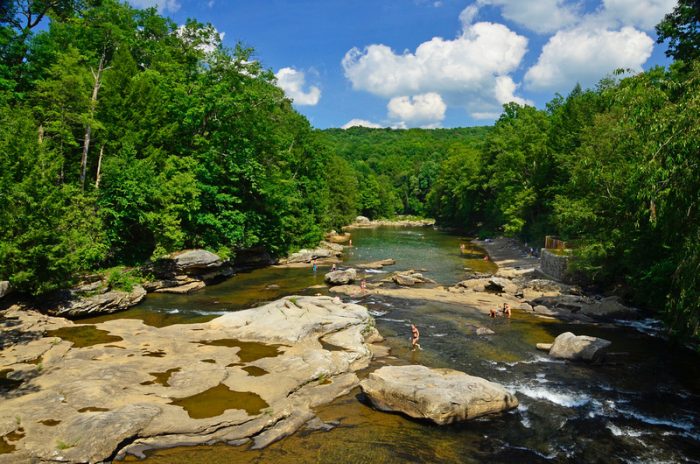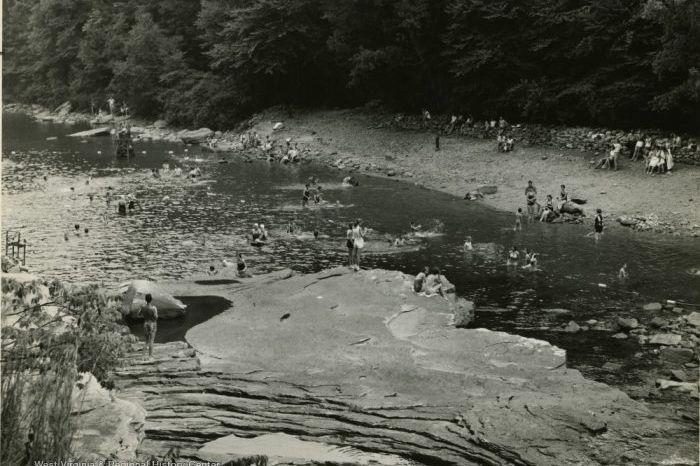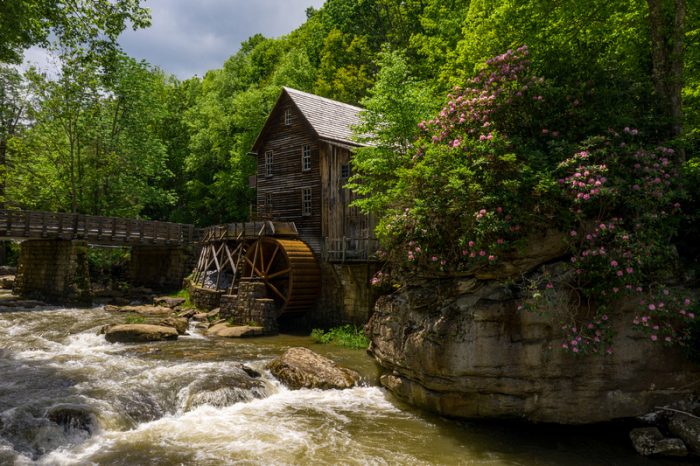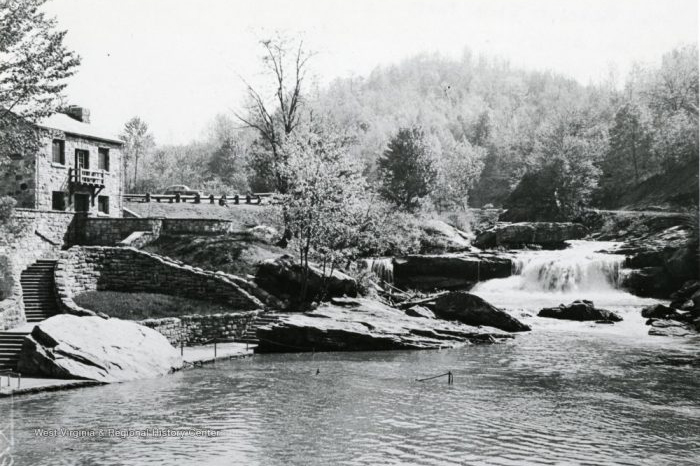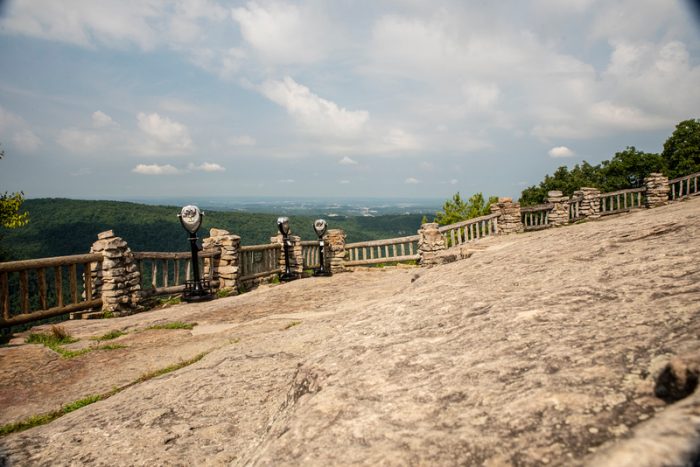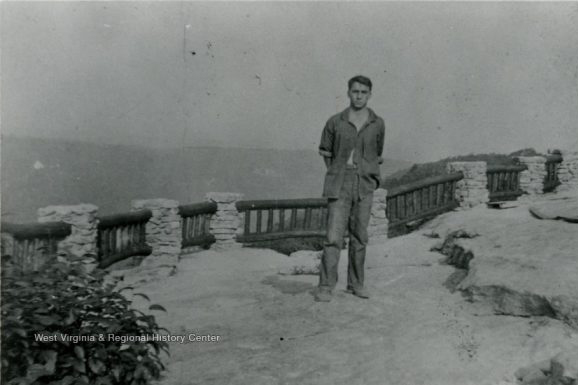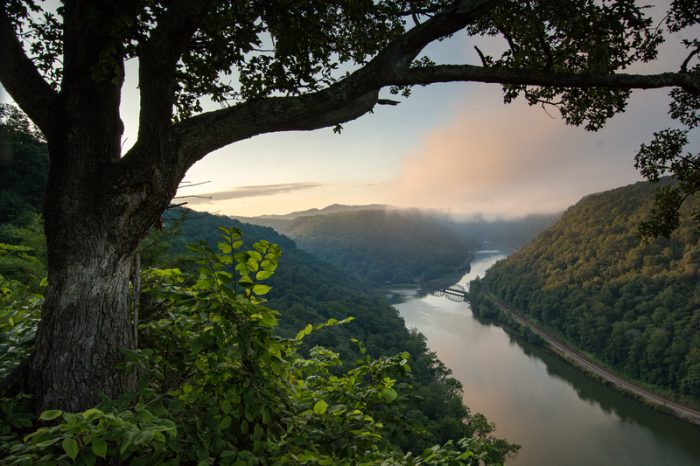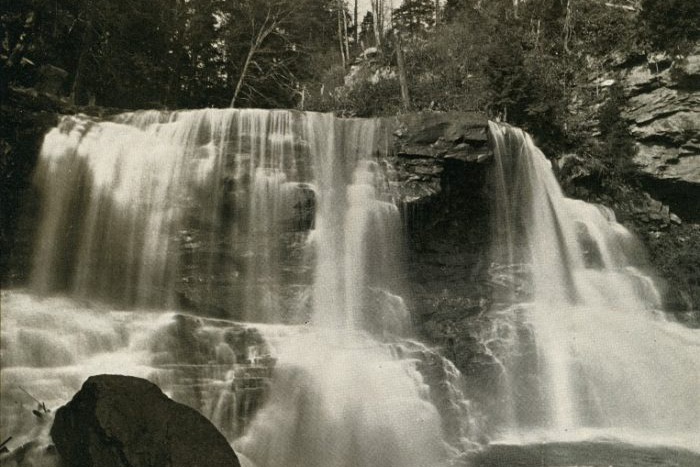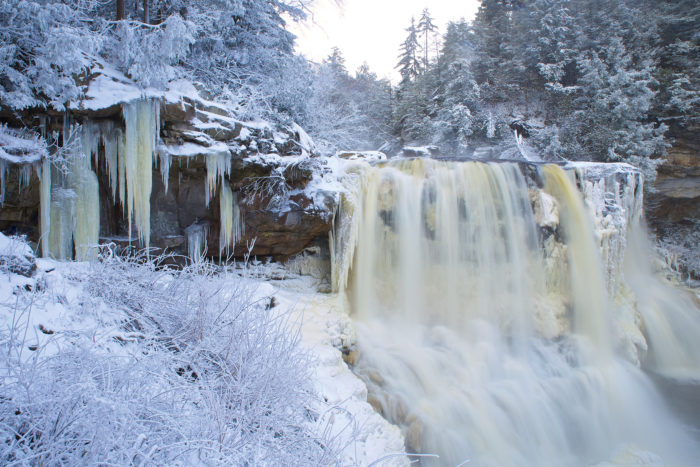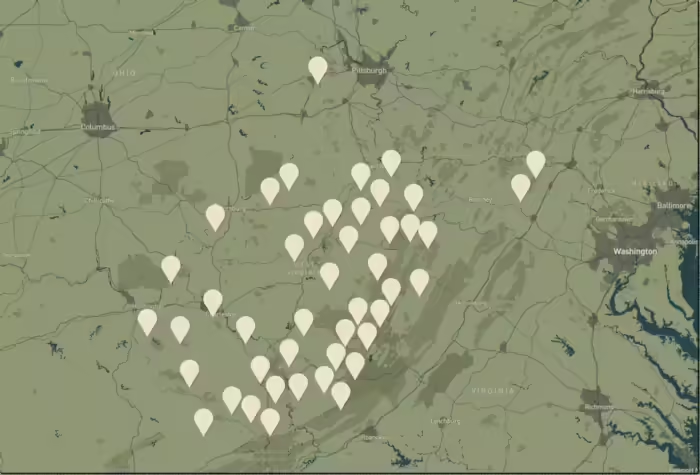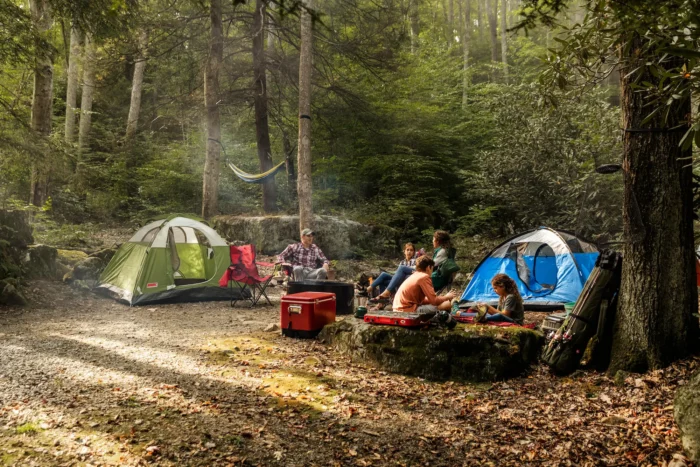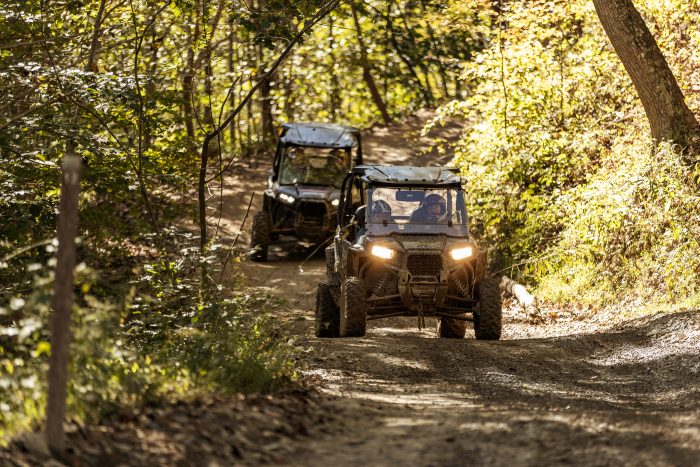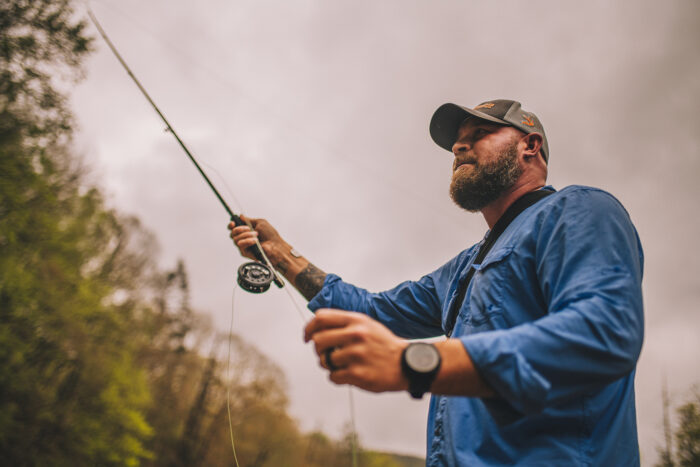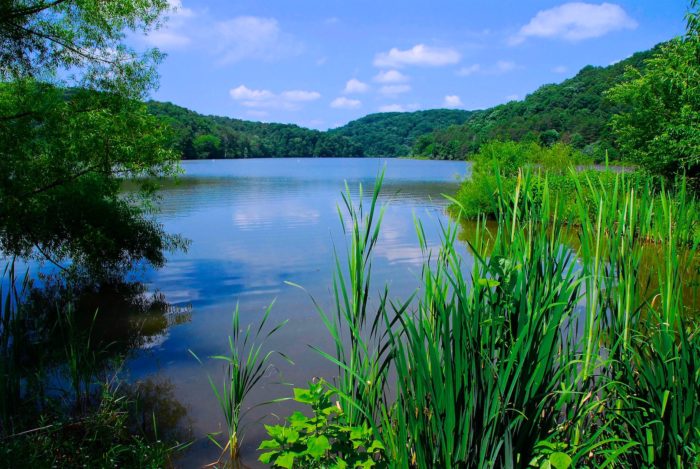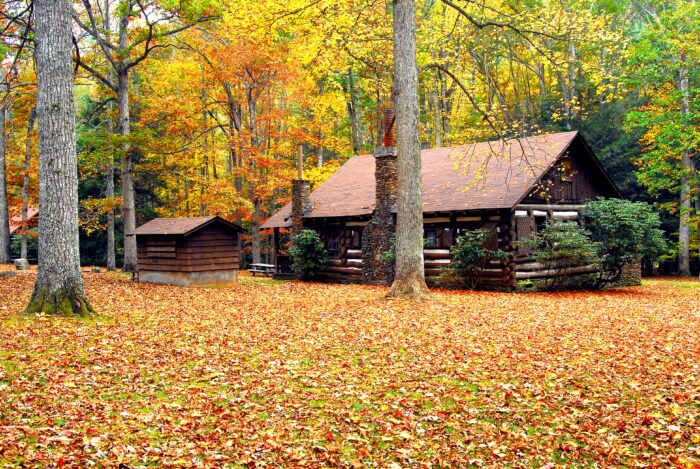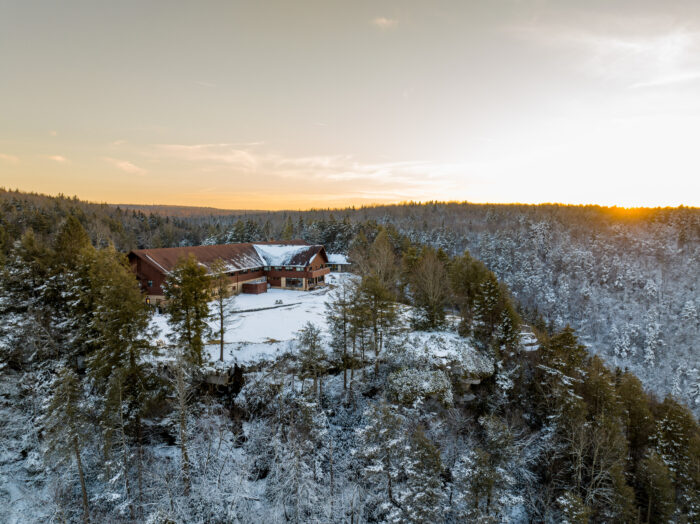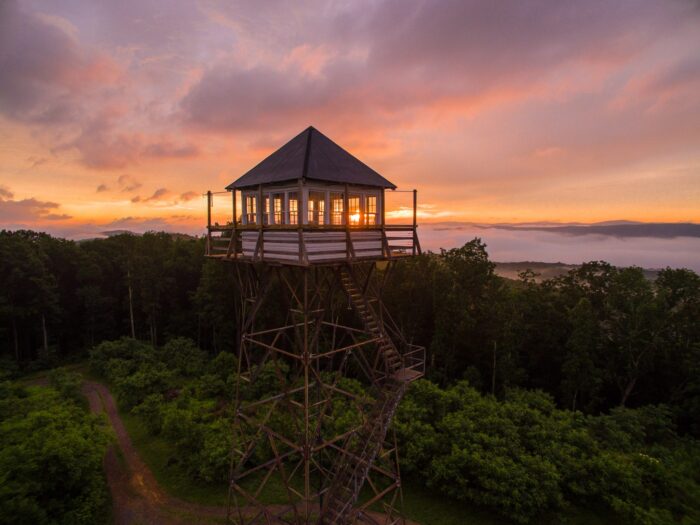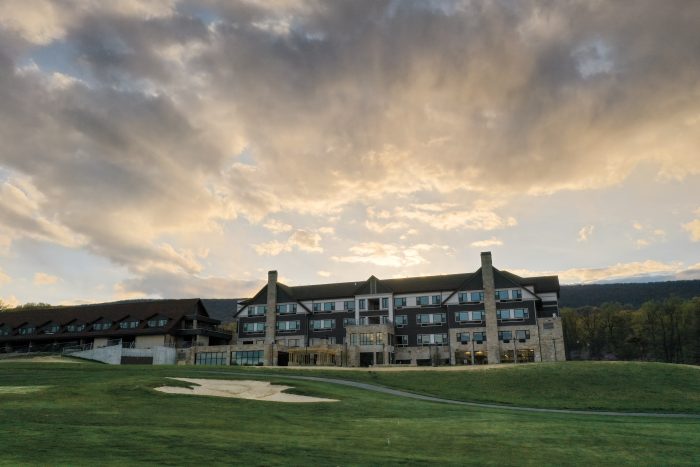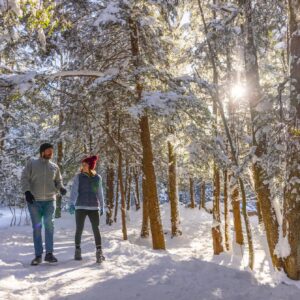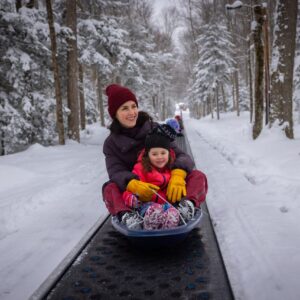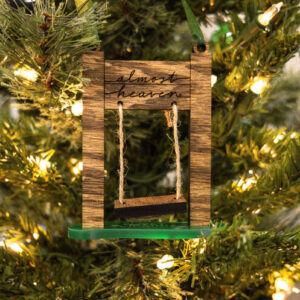West Virginia State Parks: Then and Now
Published: March 19, 2020Expansion and improvements change the look of parks over the years
The land now occupied by West Virginia state parks and forests boasts a rich history with a large cast of players, including Native Americans, early pioneers, loggers, mill workers, and numerous local civic and conservation groups. Together, these people helped mold the land that is among the most cherished places in Wild Wonderful West Virginia. How much have the parks changed over the years? Here are just a few fascinating stories.
From 4-H camp to state park
Did you know the trail that leads to Alum Cave at Audra State Park was once a tram road? It was built in 1906 by a lumber company to haul logs down to the sawmill that stood at the lower end of the present-day park. After the logging companies left, the area served as Barbour County’s 4-H Club Camp. It became a day-use state park in 1950—its swimming hole on the Middle Fork River serving as the star attraction. The place proved to be so popular that in the 1960s the park added a campground and turned it into an overnight destination. The swimming hole is still in use today—with lifeguards and a bathhouse for your safety and convenience.
The birth of a grist mill
Opened on July 1, 1937, Babcock State Park is one of West Virginia’s first state parks. But that iconic mill you see on all the postcards and calendars wasn’t built until 1976! The original mill that stood where the park is now burned down in the 1920s. Years later, park officials saw an opportunity to salvage parts from several older mills in West Virginia to construct a new mill near where the original Cooper’s Mill once operated. Today, Glade Creek Grist Mill is one of the most photographed images in the state. In its early years, the park had several cabins, a swimming pool, and picnic shelters built by the Civilian Conservation Corps (CCC). In the 1960s a campground, lake and more cabins were added.
Remnants of the iron industry
The main overlook at Coopers Rock State Forest was one of several projects completed by the CCC after the park opened in 1936. The CCC also built picnic shelters as well as the superintendent’s house and garage (now listed on the National Register of Historic Places). That spectacular view of the Cheat River Canyon was further protected in 1996, when the state added 2,000 more acres to the forest on the opposite side of the gorge. The towering, cut-stone Henry Clay Iron Furnace, located along the Clay Furnace Trail, is a remnant of the iron industry that once flourished along the Cheat River.
A Native American love story
Hawks Nest State Park is known for its breathtaking overlooks of the New River Gorge. Legend has it that the Lover’s Leap Overlook was inspired by the tragic love story of a Cherokee maiden and a Shawnee brave who leapt to their deaths when they were forbidden to see each other. While we can’t vouch for the authenticity of this story, it is a fact that U.S. 60/The Midland Trail Scenic Byway where Hawks Nest is located once was a major east-west route for Native American tribes. After the park opened in 1935, the CCC contributed several projects, including a unique stone restroom that’s shaped like a round tower. The park’s modern lodge was built in 1967 and the aerial tram was added in 1970.
Rising from the ashes
Long beforeit became a state park, the “Great Falls of the Blackwater” attracted adventurers seeking a wilderness teeming with wildlife and rivers than ran heavy with trout. The first vacation cabin was built there in 1857. But by the late 1800s, loggers had removed so many trees that there wasn’t enough canopy to keep the ground moist. Wildfires raged out of control, destroying the cabin and nearly consuming the town of Davis. After Blackwater Falls State Park was established in 1937, the CCC, together with local scouting groups, the State Federation of Women’s Clubs and park personnel, planted thousands of seedlings. Today, the Blackwater Canyon has been restored to its original wild beauty. You’ll still find plenty of wildlife and excellent trout fishing here, but with the added convenience of full-service lodging and other amenities.
West Virginia State Parks hold decades of memories. Create your own by booking your Almost Heaven getaway today!
Book Now
